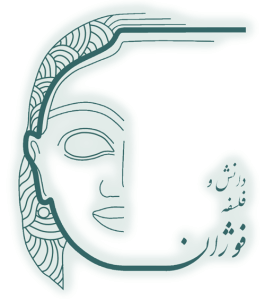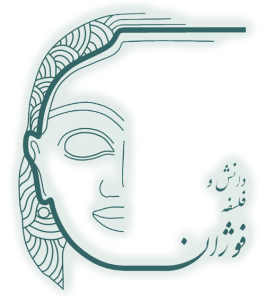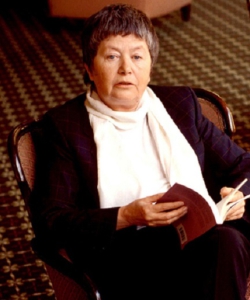Luce Irigaray
Luce Irigaray
- The Director of Research in Philosophy
- The Centre National – Paris
Main Interests
- Psychoanalysis
- Philosophy
- Linguistics
- Gender studies
Remarkable ideas
- Sexual Difference
- Mother/Daughter Relationships
- I love to you
About Luce
According to the Encyclopedia of Modern French Thought (2004), Luce Irigaray, who has two doctoral degrees in Philosophy and Linguistics, was born in Belgium in 1932. She is also a famous psychoanalyst, known as a researcher at the Centre National in Paris since 1964; at this centre, she acts as the Director of Research in Philosophy. At the beginning of Je, Tu, Nous (1993), she refers to her studies at, and later excluded from, the Freudian School of Paris. In 1974, while studying at the school, she published her thesis, Speculum of the Other Woman (1974). The phallocentrism of the Freudian and Lacanian schools was criticised in this thesis. The Lacanian community deposed her of her teaching post at the University of Vincennes. Despite these early hardships, Irigaray became an authoritative writer in contemporary feminist theory, and she is an influential member of the women’s movement in France and other countries.
By publishing An Ethics of Sexual Difference (1993), she emphasises creating a new understanding of female subjectivity. In her I Love to You (1996), she investigates ways to improve relations between men and women based on genuine respect for sexual differences (Encyclopedia of Modern French Thought, 349). Despite having different phases of thought as varied as the family, the history of philosophy, spirituality, the gender difference in language use, eastern opinion and the need for specific legal rights for both men and women, Irigaray always concentrates on the fundamental question of sexual difference. She is against western culture’s definition of male subjectivity and female objectivity. By focusing on sexual difference, she argues that any theory of the human subject must consider two universal entities.
Since ancient times, Irigaray believes that all women have been identified with the role of the “mother,” hence related to nature, emphasising their unthinking role outside culture and subjectivity. She affirms that since women are not known as complete subjects, they are sacrificed in western culture. She also asserts that the actual sexual difference in Western culture does not exist because there is only one subjectivity, which belongs to men. Women are considered “the other” of these subjects. Early receptions of Irigaray in the English-speaking world often mistakenly labelled her as an ‘essentialist.’
Irigaray was best known for her theory of “sexual difference,” according to which the supposedly sexless notion of the subject, or ego, in Western philosophy and psychoanalytic theory subtly reflects the interests and perspectives of men. At the same time, women are associated with the nonsubject (the Other) or with matter and nature. She argued that there is no authentic heterosexuality in Western culture because the culture represents or cultivates only a male subject, not a female one, particularly in law, religion, political theory, philosophy, and art. Irigaray’s project was to introduce into this philosophical heritage two sexed subjects and to call for the development of culture and ethics that would do justice to both. She conceived of her work as comprising three phases: the first phase demonstrates the male perspective that has dominated Western discourse; the second sketches possibilities for the construction of a feminine subject; and the third aims to develop the social, legal, and ethical conditions necessary for relations between two differently sexed subjects.
Books
- Irigaray, Luce (1974).Speculum of the Other Woman. (Eng. trans. 1985 by Gillian C. Gill), ISBN 9780801493300.
- Irigaray, Luce (1977).This Sex Which Is Not One. (Eng. trans. 1985), ISBN 9780801493317.
- Irigaray, Luce (1980).Marine Lover: Of Friedrich Nietzsche. (Eng. trans. 1991 by Gillian C. Gill), ISBN 9780231070829.
- Irigaray, Luce (1982).Elemental Passions. (Eng. trans. 1992), ISBN 9780415906920.
- Irigaray, Luce (1983).The Forgetting of Air: In Martin Heidegger. (Eng. trans. 1999), ISBN 9780292738720.
- Irigaray, Luce (1984).An Ethics of Sexual Difference. (Eng. trans. 1993 by Gillian C. Gill), ISBN 9780801481451.
- Irigaray, Luce (1985).To Speak is Never Neutral. (Eng. trans. 2002), ISBN 9780826459046.
- Irigaray, Luce (1987).Sexes and Genealogies. (Eng. trans. 1993 by Gillian C. Gill), ISBN 9780231070331.
- Irigaray, Luce (1989).Thinking the Difference: For a Peaceful Revolution. (Eng. trans. 1993), ISBN 9780485114263.
- Irigaray, Luce (1990).Je, Tu, Nous: Towards a Culture of Difference. (Eng. trans. 1993), ISBN 9780415905824.
- Irigaray, Luce (1990). I Love to You: Sketch for a Felicity Within History. (Eng. trans. 1993), ISBN 9780415907323.
- Irigaray, Luce (1994). Democracy Begins Between Two. (Eng. trans. 2000), ISBN 9780415918169.
- Irigaray, Luce (1997).To Be Two. (Eng. trans. 2001), ISBN 9780415918145.
- Irigaray, Luce (1999).Between East and West: From Singularity to Community. (Eng. trans. 2001), ISBN 9780231119351.
- Irigaray, Luce (2000). Why Different?, ISBN9780801493300.
- Irigaray, Luce (2002).The Way of Love.ISBN 9780826473271.
- Irigaray, Luce (2008). Sharing the World. (Eng. trans. 2008), ISBN 9781847060341.
- Irigaray, Luce (2008). Conversations, ISBN9781847060365.
- Irigaray, Luce (2013).In the Beginning, She Was. ISBN 9781441106377
- Irigaray, Luce; Marder, Michael (2016).Through Vegetal Being: Two Philosophical Perspectives. ISBN 9780231173865.
- Irigaray, Luce (2017).To Be Born: Genesis of a New Human Being. ISBN 9783319392219.
- Irigaray, Luce (2019). Sharing the Fire: Outline of a Dialectics of Sensitivity. ISBN 9783030283292






